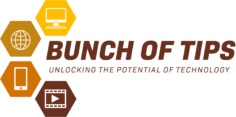CRM software is one of the most essential customer relationship management tools out there. Understanding customer relationship management is crucial for businesses of all sizes and types, as customer satisfaction directly impacts customer loyalty.
For businesses to thrive in the digital age, having a customer-centric approach is of utmost importance. This customer-centric approach involves automation, systemization, and data management. CRM software helps businesses manage customer data and information systematically, thus improving sales processes and customer retention. With the right CRM system in place, businesses can easily access information about customers that are important to them. But before you choose a system or get familiar with what it can do for your business, it’s crucial that you understand what CRM software actually is. In this blog post, we will cover everything you need to know about CRM software—from its definition to its key features and benefits. We’ll also discuss types of software available today so you can make an informed choice.

The Complete Definition of CRM Software: What It Is and Why It Matters
– CRM software is customer management software designed to help businesses foster relationships with customers and improve sales.
– It helps companies track customer interactions and store data in a centralized database that is accessible to multiple people within the organization.
– CRM software provides a platform to focus on customer interactions throughout the customer lifecycle, helping businesses streamline sales, marketing efforts, customer service, accounting, and management for growing companies.
– Customer relationship management software aims to provide more engaging customer experiences, increase customer loyalty and retention, and drive business growth and profitability.
– Its various features enable businesses to better understand customers’ needs, develop relationships with customers over time, and create a customer experience that customers love.
– Some of the popular CRM software offerings include Salesforce.com’s Force℠, Marketo’s marketing automation software platform, HubSpot’s marketing automation platform, Genbook’s customer relationship management software solution, Oracle’s marketing automation software solution, GoToMeetings’ customer relationship management software solution, Freshdesk’s customer relationship management software solution , etc.
Exploring the Key Features and Benefits of CRM Software for Businesses
CRM software is the technology of choice for businesses of all sizes and in any industry, from B2B to B2C. It can help businesses scale, optimize sales performance, and streamline business processes through customer interactions. These advanced capabilities help businesses of all shapes and sizes achieve their goals and ambitions. A CRM system allows enterprises to connect with customers, provide personalised interactions, viewable across teams with data from connected devices and artificial intelligence (AI). Additionally, aCRM system makes businesses future-proof by connecting them with their customers, providing personalized engagement regardless of device or platform. This is vital as customers increasingly expect customer-centric service experiences that can be accessed anywhere and on any device. ACRM software has helped businesses of all types and sizes become more customer-focused and efficient.
A Comprehensive Guide to Choosing the Right CRM Software Solution
– Choosing the right CRM software for your business depends on various factors such as industry, company size, and more.
– Some of the features of CRM software include customer database management tools, data management tools, workflow automation, analytics, and other functionality.
– CRM systems include customer relationship management (CRM) software and are used to manage customer relationships and interactions. They help businesses to track customer interactions along a customer journey and improve profitability.
– Apart from sales and marketing departments, customer service team members can also benefit from tools like email marketing, social media marketing, data analytics, and more.
– CRM software helps businesses to track customer interactions in an organized manner and improves business processes. This also enhances customer experience.
Understanding the Different Types of CRM Software Available Today
– CRM software is a powerful platform that combines multiple tools under one roof, such as sales force automation (SFA), email, phone, chatbot, and more.
– One of the main benefits of using a software-based solution is that it can provide businesses with the functionality of several different tools in one system.
– There are four types of CRM software available: Salesforce, Microsoft, SAP, and Oracle. Each of these platforms offers businesses a unique set of features and benefits. Salesforce is known for its customer relationship management functionality, which includes customer relationship management tools and features. SQL server support also makes it an ideal platform for businesses looking to use CRM software.
– Some businesses choose to use software-as-a-service (SaaS) solutions because they are easy to implement and manage, but businesses can also opt for on-premises software if they want greater control over their data.
– Examples of CRM usage vary by the type and purpose of the specific system. For instance, some businesses may choose SFA software when they have a small sales team or sales process; others may choose email software to simplify email marketing campaigns; and for others customer relationship management software may be the best fit.
– CRM is not just for large businesses but companies of any size can benefit from a system like this. It can help businesses better track customer interactions, analyze data quickly and efficiently, and automate processes as part of a customer lifecycle management strategy.
Choosing the Right CRM Software: Factors to Consider When Making a Decision
– From small businesses to multinational corporations, businesses of all sizes can benefit from using a CRM system.
– There are various factors to consider when choosing the right software, including features, platform, and budget.
– Businesses should consider the features of the software, such as customer relationship management (CRM) software’s features and functionality. These features include customer interactions across different channels or media and automation of routine processes.
– A business should also consider the platform on which it plans to operate its CRM system. Some businesses may prefer software with cloud-based or hybrid functionality. Others may opt for software on their own data infrastructure or that of a partner.
– Finally, businesses should consider their budget and how much CRM software will cost in relation to the business’s needs. Doing so will help them get a clear idea of what a good fit is for their business needs and budget constraints.

FAQ
Q: What is CRM software?
A: CRM software, short for Customer Relationship Management software, refers to a technology tool that businesses use to manage their relationship with existing and potential customers.
Q: How does a CRM system work?
A: A CRM system works by storing and organizing customer data, such as contact information, purchase history, and interactions. It allows businesses to track customer interactions, manage leads, streamline sales and marketing processes, and improve customer service and support.
Q: Why is CRM important for businesses?
A: CRM is important for businesses because it helps them build and maintain strong relationships with their customers. It allows businesses to understand customer needs, personalize interactions, generate new leads, improve customer satisfaction, and ultimately drive revenue growth.
Q: What are the benefits of using a CRM system?
A: Some of the benefits of using a CRM system include improved customer satisfaction, increased sales and marketing effectiveness, better customer retention, streamlined business processes, enhanced data analysis and reporting, and improved collaboration among team members.
Q: How much does a CRM system cost?
A: The cost of a CRM system can vary depending on factors such as the size of the business, the number of users, the functionality required, and whether it is an on-premises or cloud-based solution. It is best to request a quote from CRM vendors to get accurate pricing information.
Q: What are some popular CRM tools or platforms?
A: Some popular CRM tools and platforms include Salesforce, Microsoft Dynamics 365, HubSpot CRM, Zoho CRM, and Pipedrive. These tools offer a wide range of features and functionalities to support customer relationship management.
Q: What is cloud-based CRM?
A: Cloud-based CRM refers to CRM software that is hosted on the cloud, rather than on a company’s own servers. It allows businesses to access their CRM system from anywhere with an internet connection and offers scalable storage and computing resources.
Q: How can CRM improve customer satisfaction?
A: CRM can improve customer satisfaction by providing businesses with a 360-degree view of their customers, allowing them to understand customer needs and preferences better. It enables businesses to personalize communications, target specific customer segments, resolve issues more efficiently, and provide proactive customer support.
Q: How can CRM help with sales and marketing?
A: CRM can help with sales and marketing by providing businesses with tools to manage leads, track sales opportunities, automate email campaigns, analyze customer data, and measure marketing performance. It enables businesses to target the right audience with the right message at the right time.
Q: How do I get started with CRM?
A: To get started with CRM, you need to first identify your business goals and objectives. Then, choose a CRM tool or platform that aligns with your needs. Next, define your CRM strategy and processes, and customize the CRM system to meet your specific requirements. Finally, train your team and start inputting customer data into the CRM system.
Conclusion
While customer relationship management software helps businesses build customer relationships, it also helps them maintain customer satisfaction and loyalty. CRM software provides a number of benefits for businesses, including increased sales and customer satisfaction and retention. While there are many types of CRM software available today, businesses should opt for software that suits their needs and offers functionality that allows them to process data efficiently. By choosing the right software solution, businesses can improve customer satisfaction and performance while reducing costs.









